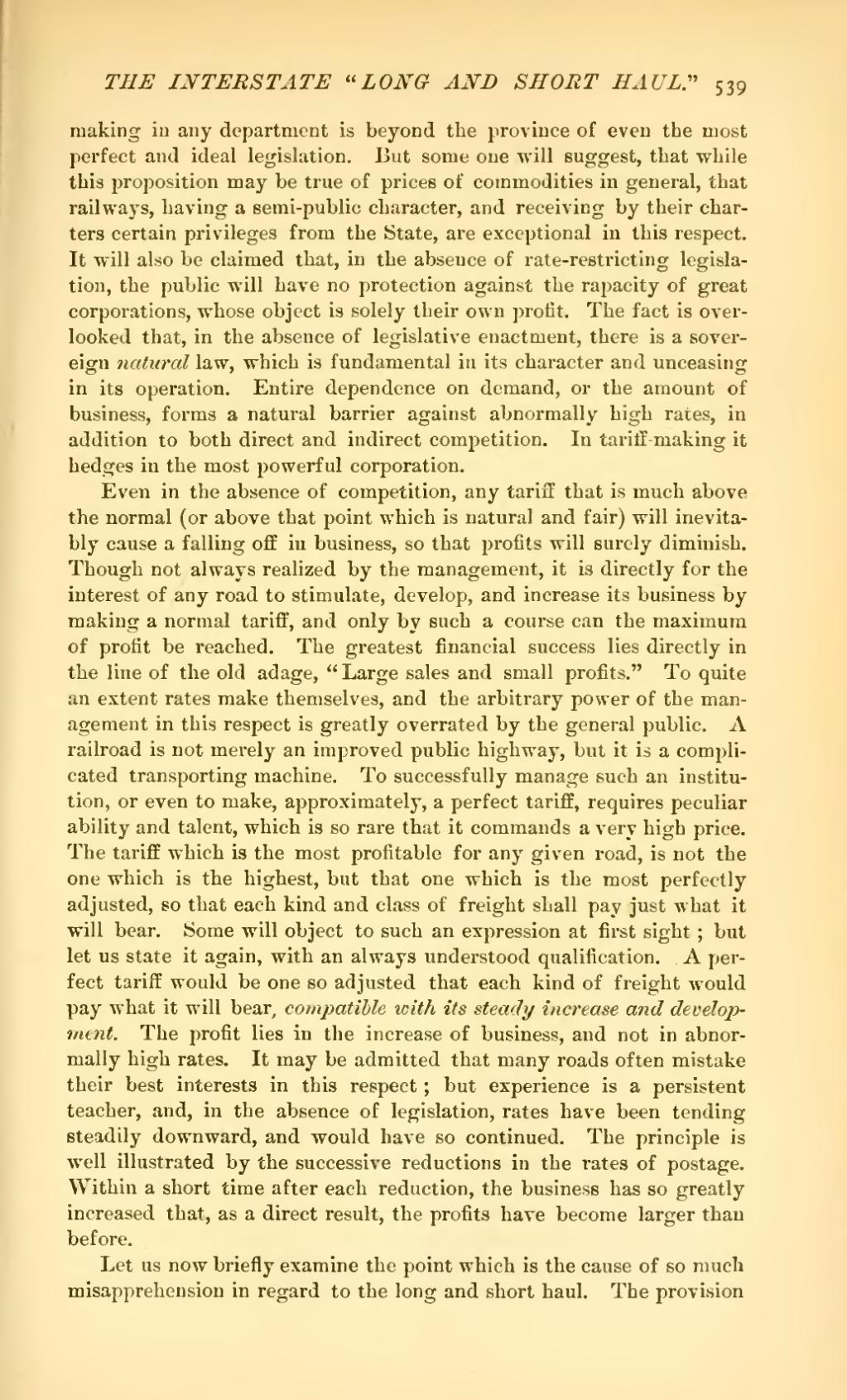making in any department is beyond the province of even the most perfect and ideal legislation. But some one will suggest, that while this proposition may be true of prices of commodities in general, that railways, having a semi-public character, and receiving by their charters certain privileges from the State, are exceptional in this respect. It will also be claimed that, in the absence of rate-restricting legislation, the public will have no protection against the rapacity of great corporations, whose object is solely their own profit. The fact is overlooked that, in the absence of legislative enactment, there is a sovereign natural law, which is fundamental in its character and unceasing in its operation. Entire dependence on demand, or the amount of business, forms a natural barrier against abnormally high rates, in addition to both direct and indirect competition. In tariff-making it hedges in the most powerful corporation.
Even in the absence of competition, any tariff that is much above the normal (or above that point which is natural and fair) will inevitably cause a falling off in business, so that profits will surely diminish. Though not always realized by the management, it is directly for the interest of any road to stimulate, develop, and increase its business by making a normal tariff, and only by such a course can the maximum of profit be reached. The greatest financial success lies directly in the line of the old adage, "Large sales and small profits." To quite an extent rates make themselves, and the arbitrary power of the management in this respect is greatly overrated by the general public. A railroad is not merely an improved public highway, but it is a complicated transporting machine. To successfully manage such an institution, or even to make, approximately, a perfect tariff, requires peculiar ability and talent, which is so rare that it commands a very high price. The tariff which is the most profitable for any given road, is not the one which is the highest, but that one which is the most perfectly adjusted, so that each kind and class of freight shall pay just what it will bear. Some will object to such an expression at first sight; but let us state it again, with an always understood qualification. A perfect tariff would be one so adjusted that each kind of freight would pay what it will bear, compatible with its steady increase and development. The profit lies in the increase of business, and not in abnormally high rates. It may be admitted that many roads often mistake their best interests in this respect; but experience is a persistent teacher, and, in the absence of legislation, rates have been tending steadily downward, and would have so continued. The principle is well illustrated by the successive reductions in the rates of postage. Within a short time after each reduction, the business has so greatly increased that, as a direct result, the profits have become larger than before.
Let us now briefly examine the point which is the cause of so much misapprehension in regard to the long and short haul. The provision
